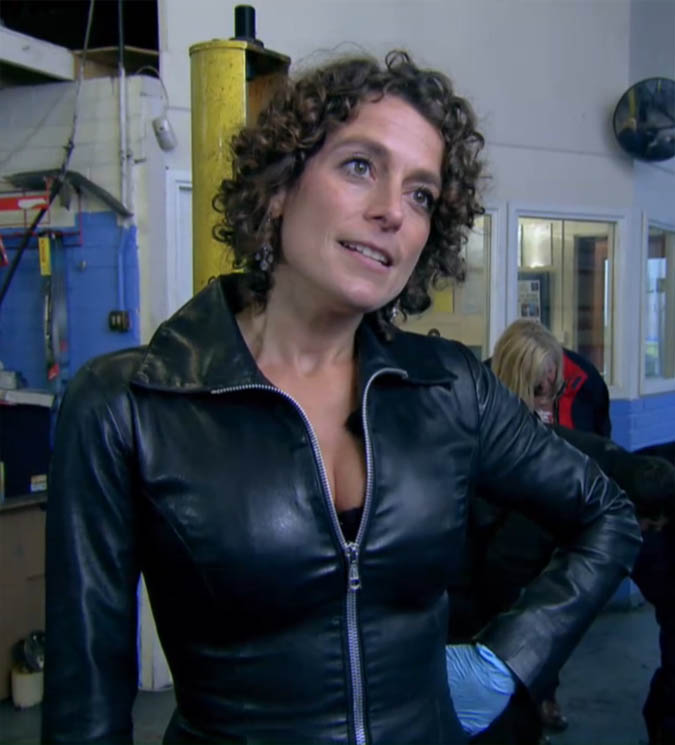In this post our trainer Shaun guides you through how to forge strong relationships with the different people you meet each day including, if you're a trainer, your delegates.
True communication requires a connection between people. When you want to build rapport with someone at work, at home, on a course, in a relationship, when trying to sell something or when trying to buy something, you should consider the following tips:
Learn all the skills you need to build rapport with your delegates on our Train the Trainer Course.
First Impressions
It may seem unfair that we are judged on our appearance but research indicates that people form a lasting impression of us within the first five minutes of meeting. Make sure you make a great first impression by dressing to impress, smiling and being assertive (which also leads to greater self-confidence!) and giving a firm handshake.

Finding Common Ground
Finding common ground or common interests is a good way to start a conversation. For example talk about work, sport or children and remember this common ground for future conversations. People will be much more open and trusting if they recognise a bond between you.
by Shaun
11 Jan 2013
Students all over the UK are either celebrating their A level success and looking forward to a future at University with excitement or have been shocked into a “What am I going to do now?” dilemma when they didn’t make the grade.
If you or your offspring are faced with the latter it’s not the end of the world. Do not despair, some of the richest and most successful entrepreneurs in the world dropped out too! In fact, 6 out of 10 of the world’s richest people have no formal higher education qualifications, and some no qualifications at all. Great leadership skills are rarely learned at school or even university, although our training will give you some insights. Determination, hard work, enthusiasm, dedication and motivation may get you a lot further than you think.
Bill Gates – Microsoft
|
Co-founder of Microsoft Corporation, Bill Gates was the world richest man for thirteen consecutive years. Worth $62 billion he is still number two, second to Carlos Slim Helu. Bill dropped out of Harvard. Bill Gates says: “We were young, but we had good advice, good ideas and lots of enthusiasm.” Good ideas and enthusiasm can earn you lot more than qualifications. |
 |
Amancio Ortega Gaona - Zara
|
Spanish billionaire Ortega had no higher education and began working for a shirt maker at the age of 13 and continued to work in the textile industry until the early 1960s. At the age of 27, he founded his own company manufacturing fine bathrobes. Today he is worth $37.5 billion according to Forbes. |
 |
Andy Trainer
17 Aug 2012
In this post our business writing trainer Jakki will be discussing five particularly useful resources for business report writing. Jakki also runs ourContent Marketing Courses.
Most of us don’t learn report writing skills at school or university.
Yes, they teach you to write, but you soon realise that your brilliant essay-writing skills simply don’t cut it in the workplace. And unless you’re lucky enough to go on aReport Writing Training Course, you’re on your own.

There are many books out there on business writing, but which ones are a good investment? After all, it’s not as if you have much time to read.
Here, to save you time, are my top five resources on how to write reports that have a positive impact on both your organisation and your career.
1/ Word Tools
Not many people know it, but Microsoft Word comes bundled with customisable proofing tools that help make your writing more readable, as well as more accurate.
Jakki
18 Dec 2012
Shaun is one of our lead Management trainers. He regularly runs our Management Skills, Leadership and Train the Trainer courses. In this blog post he draws on content from his Facilitation Skills course. If you want to know more about this topic then why not give us a call on 01273 622272? We will do our best to find you the most suitable course.

The word "facilitate" doesn't mean to lead, control, or direct. Facilitate simply means to make easier. In a practical sense, the job of a facilitator is to help create a space that is comfortable and productive for a group of people. Facilitating is like adding oil to a car. Facilitators make meetings, discussions, and events of all sorts run smoothly.
Here are some tips on facilitating:
Setting the Tone
The opening stage of any session is a good time for setting the tone and establishing group norms. Facilitators are carefully watched for signs of behaviour that is appropriate or inappropriate, so lead by example and use this time to introduce and model appropriate types of behaviour.
Stay Neutral
You should avoid sharing a strong opinion; as a facilitator, if you want to say something, call on yourself in turn, but make sure you don't use your role to dominate the discussion. Furthermore, you should not allow people with race, class, gender, or other subtle or non-subtle privilege to dominate a meeting. As a facilitator, you should encourage everyone to participate while moving the meeting along to meet time and agenda limits.
Andy Trainer
13 Aug 2012
|
Here at Silicon Beach Training we offer a wide range of Management Training & Leadership Training courses, and a topic that regularly appears in a lot of them is SMART objectives. So what are SMART objectives? In this post we take a look at how you can use them effectively. |

Some of the training courses that look at SMART objectives in more detail include Management Skills for New Managers, Leadership Skills Training, Performance Management Training & Appraisals Training.
Goals, aims and objectives are often confused. All describe things that you want to achieve, however I see goals and aims as broader, more aspirational intentions whereas an objective is a narrower more defined task you need to achieve in order to meet your long term goals and aims.
All managers and leaders must be able to set effective objectives for their staff, whether they are to achieve project or task objectives, personal development objectives for people to grow in their role or performance standard objectives aligned with a competency framework, values or behavioural guidelines.
When setting objectives for your team you will need to ask yourself:
- What are my team’s targets and goals for the coming period?
- What standards do I need the team to maintain / improve?
Andy Trainer
14 Mar 2011
|
I really enjoyed watching The Fixer last Tuesday on BBC2. With her usual style and panache, Alex Polizzi advises a failing family car repair garage, Guidebridge MOT in Ashton-under-Lyne, Manchester. Honestly (some would say brutally) she administers her hard truths about customer service, organisation and marketing. When the fleet inspector arrives (fleet work is the name for servicing done for companies with many vehicles to service), he tells her that he likes to find the s**t in people! This is apparently an acronym for: |

- Sincerity
- Honesty
- Integrity
- Trust
With usual sharp wit, Alex responds “so you want me to help them get their s**t together.”
Customer service has never been more important in my opinion. The family were under the impression that their customer service was good. They then demonstrated otherwise by keeping customers waiting without any explanation of when their vehicles would be ready. Not only that, but customers were made to wait in an area that in her own words “one would want to slit your wrists in”.
In the training business, there are times when clients need answers to questions that only trainers can respond to, so sometimes although we prefer to give all clients immediate responses to their questions we may need to wait for a response ourselves. It is important at all times to keep the customer informed of progress. A polite email or phone call is all it takes to explain any delays so the customer knows exactly when they can expect what they are looking for. It is imperative to keep communication going, nobody likes to be ignored.
A lack of marketing seems to be a common theme in the series. Alex suggests to the garage that they revisit an old idea “Women at the Wheel” where women were invited to a free session enabling them to learn to change a tyre, fill their oil and water etc. Everybody loves a freebie, and if it encourages potential clients to revisit you, even better.
Once customers receive a great or free deal, you have built a relationship with a potential paying client - you now have their trust and have gone a long way towards sorting your s**t out! These potential clients are much more likely to come back, and loyalty is what you are looking for especially in the service industry.
The highlight of the programme for me was when Alex turned up to the “woman at the wheel” event dressed in leathers.

Alex Polizzi in Leathers
I loved the look on the daughter's face when she emerged from her car!
Heather Buckley
24 Feb 2012
|
“Never feel bad for being assertive, speaking your mind, and putting your foot down. What you think is anger, others see as a good solid display of self-esteem. ” - Alison James
This guest post from our Assertiveness & Confidence Building trainer Sofie explains how assertiveness leads to improved self-confidence. The full 2-day workshop covers techniques for confidence building and boosting self esteem. |

Positive communication
It is important to note that being assertive is not about being aggressive.
Assertiveness is a form of positive communication that can be learnt and applied to all areas of your life. It is the skill of knowing and defending your rights but at the same time understanding that others have rights too.
When someone is asserting themselves their primary focus should be on reaching a joint solution, which meets the needs of both people involved. In other words ‘I’m OK and you’re OK’. It is not about getting angry or making someone bow to your demands. This type of aggressive communication is manipulative and threatening and not at all considerate of other people. Equally other non-assertive ways to communicate include passive and passive-aggressive behaviours.
by Sofie
10 Feb 2012